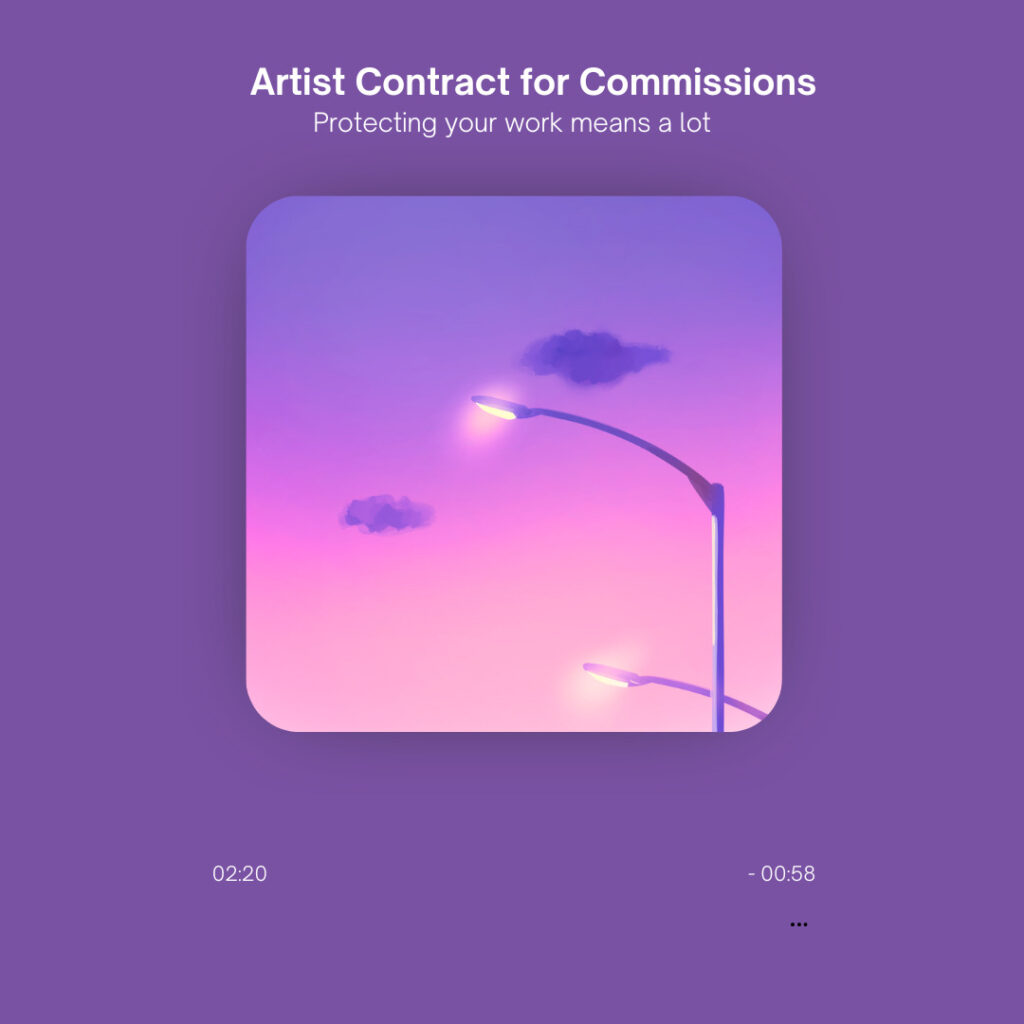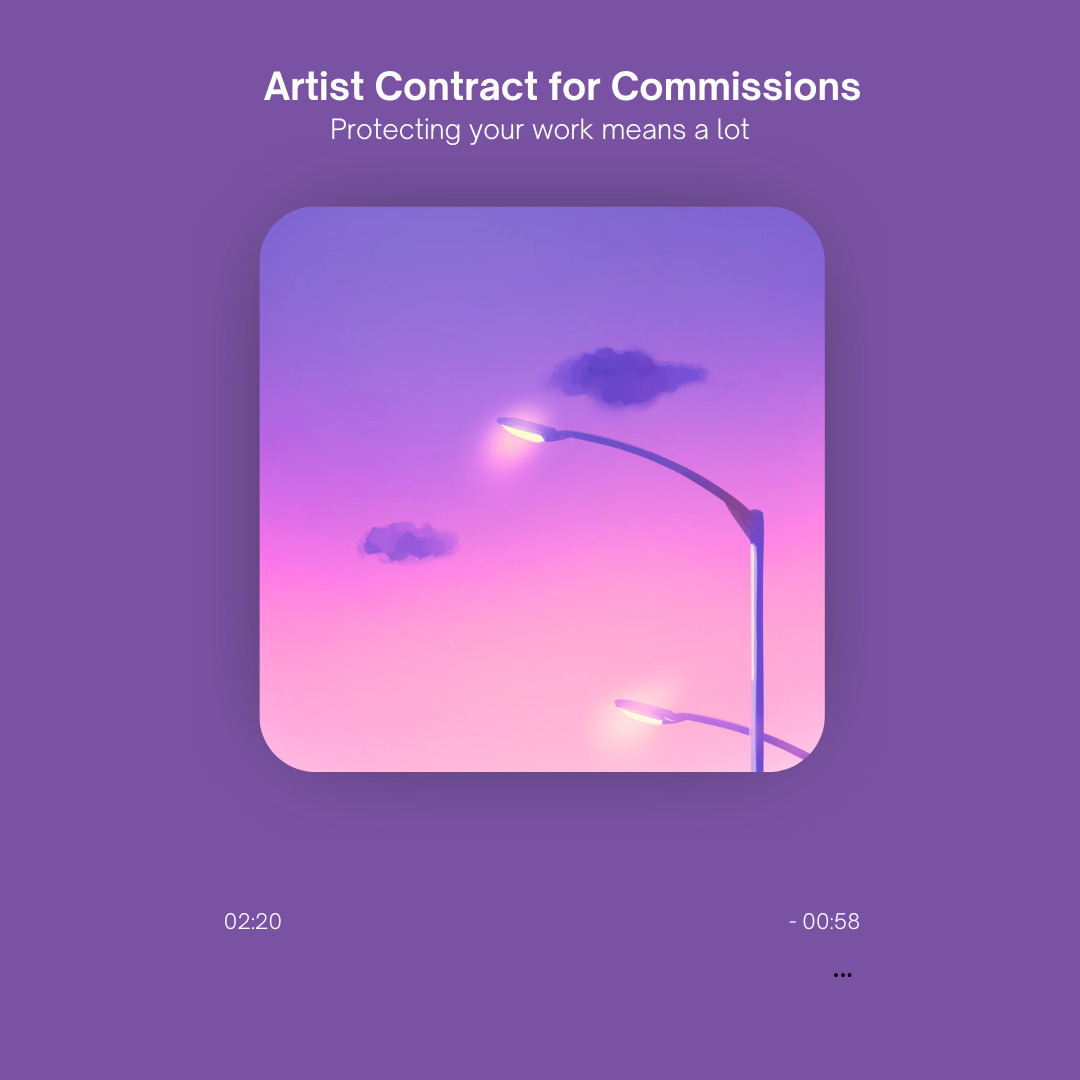Defining the Purpose and Scope of Artist Contracts for Commissions

Artist Contracts for Commissions: Artists often receive commission requests from clients, be it for a painting, sculpture, illustration, or any other creative work.
These commissioned projects are exciting opportunities for artists to showcase their talent and earn income.
However, to ensure a smooth and mutually beneficial collaboration, it is crucial for both the artist and the client to have a clear understanding of their rights, responsibilities, and expectations.
This is where an artist’s contract for commissions plays a vital role. In this article, we will delve into the details of artist contracts for commissions and explore their key components.
Purpose and Scope of the Contract:
The artist contract for commissions serves as a legally binding agreement between the artist and the client. It defines the purpose of the commissioned work, such as the type of artwork, its specifications, and the desired outcome. It also outlines the project’s scope, including deadlines, revisions, and any additional services agreed upon.
Payment and Compensation:
The contract should clearly state the agreed-upon payment terms, including the commission fee, payment schedule, and any additional expenses (materials, shipping, etc.) that the client will cover. It is essential to address the issue of copyright and ownership, specifying whether the client will have exclusive rights to the commissioned artwork or if the artist retains certain usage rights.
Timeline and Milestones:
To maintain transparency and avoid misunderstandings, the contract should establish a realistic timeline for the project, including key milestones or deliverables. This ensures that both parties have a shared understanding of the project’s progress and helps manage expectations.
Revisions and Changes:
The contract should address the number of revisions included in the agreed-upon fee and establish a process for requesting changes. It is important to specify that any major changes beyond the initial scope may incur additional fees or require a separate agreement.
Cancellation and Termination:
Unforeseen circumstances can arise, necessitating the cancellation or termination of the commission. The contract should outline the conditions and procedures for such situations, including any refund policies or compensations for work already completed.
Confidentiality and Intellectual Property:
The contract should include provisions to protect both the artist’s and the client’s confidential information. It should also clarify the ownership and usage rights of the commissioned artwork, particularly if the client plans to reproduce or display it publicly.
Legal Considerations:
To ensure the contract’s enforceability and legal validity, it is advisable to consult with a lawyer or legal expert experienced in art contracts. They can provide guidance specific to your jurisdiction and help you craft a contract that aligns with local laws and regulations.
Communication and Collaboration:
While not legally binding, it is beneficial to outline expectations regarding communication and collaboration. This can include preferred modes of communication, regular project updates, and any specific requirements for client feedback or artist-client meetings.
Signatures and Execution:
Once the contract terms are agreed upon, it is important for both parties to sign and date the document. This formalizes the agreement and serves as evidence of consent and understanding.
Artist contracts for commissions are essential tools for establishing a clear understanding between artists and clients.
Read also Southern Soul Music Festival 2023: Tour Dates, Artists, and Everything You Need to Know
By defining the purpose, scope, payment terms, and other crucial aspects of the commission, these contracts help foster a professional and successful collaboration.
Artists should tailor their contracts to suit their specific needs and seek legal advice to ensure their rights and interests are protected.
Clear and comprehensive contracts promote transparency, reduce the likelihood of disputes, and contribute to a positive experience for both artists and clients in the world of commissioned art.

1 thought on “Understanding Artist Contracts for Commissions: A Comprehensive Guide”